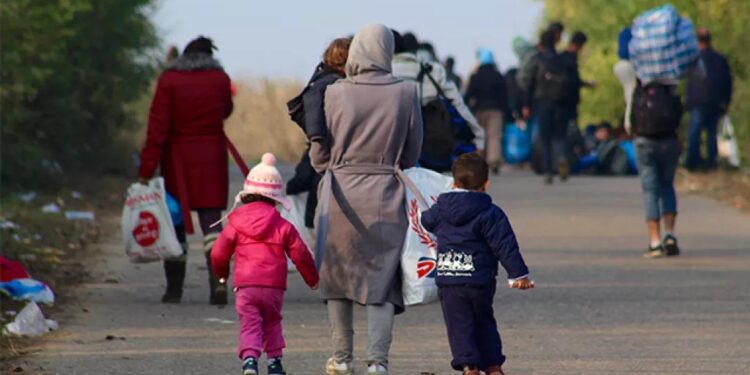By Lucy Adautin
In El Amra, a coastal town in Tunisia, migrants hailing from sub-Saharan Africa are pleading for freedom to journey to Europe as tensions escalate over the government’s management of the migrant crisis.
Hidden away from the main roads, local olive groves shelter migrant encampments, stark reminders of the hardships endured by those aspiring for a better future in Europe.
Within these encampments are migrants from Mali, their faces marked by exhaustion and desperation.
“There is no work here. It’s not easy to find anything to eat. All we want is for them to let us go, we will leave,” said Defao, a Malian migrant.
A migrant from Burkina Faso was looking for safe passage and did not want to stay in Tunisia.
“There is war in our countries and we are here only to cross over and save our families. Since we’ve been here, we’ve done nothing wrong. We are only asking to be allowed to pass,” said Zilé Inoza.
El Amra and nearby Jebeniana have become crucial waypoints for many migrants dreaming of a better life in Europe, reflecting the escalating issues facing Tunisia. This North African country serves as a significant transit hub for migrants from Syria, Bangladesh, and various sub-Saharan African nations.
Law enforcement has bolstered its presence in these agricultural towns, where approximately 83,000 Tunisians reside alongside a growing influx of international migrants.
This weekend, hundreds of Tunisians marched through the streets of Jebeniana, demanding that the government expel the migrants. Protesters argue that they have shouldered the burden of Tunisia’s efforts to prevent migrants from reaching the European Union. This comes less than a year after Tunisia struck an anti-migration deal with the EU, aimed at enhancing border control in exchange for over $1 billion in aid.
President Kais Saied of Tunisia has adopted a stringent stance against migrants, accusing them of contributing to violence and crime in the country.
The Tunisian Coast Guard reports that it has thwarted over 21,000 migration attempts by land or sea this year. According to the U.N. refugee agency UNHCR, fewer than 8,000 migrants successfully made the sea journey from Tunisia to Italy in the first four months of 2024, a threefold decrease from the previous year.
The International Organization for Migration’s office in Tunisia estimates that around 7,000 migrants are living near Jebeniana and El Amra, although local residents believe the number could be significantly higher.




































